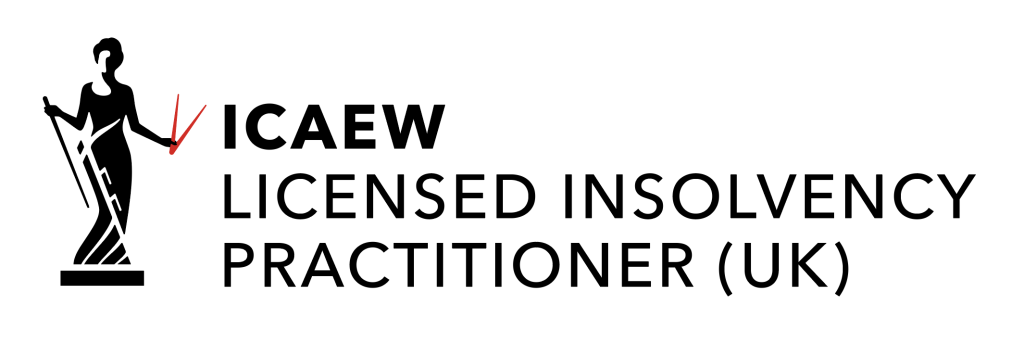Company Insolvency FAQs
Anderson Brookes Insolvency Practitioners help directors close limited companies with debt quickly, legally and with expert guidance every step of the way.
Still have questions? Contact us
Detailed Advice for Directors on Company Insolvency
When your company can’t pay its debts, it’s classed as insolvent. As licensed insolvency practitioners, Anderson Brookes has guided thousands of directors through company insolvency, ensuring clarity, protection, and the best possible outcome.
Below you’ll find clear answers to your most pressing insolvency questions, from practical next steps to directors’ risks, employee rights, and dealing with HMRC debts. Need immediate advice? Call our experienced team directly on 0800 1804 933 or email advice@andersonbrookes.co.uk for free, confidential support.
FAQs
When exactly is my company insolvent?
Your company is insolvent if:
You cannot pay debts as they fall due, including wages, suppliers, HMRC tax, or loan repayments.
Your company’s liabilities outweigh its assets, known as being balance-sheet insolvent.
Either situation means insolvency is legally recognised, requiring action to protect creditors, employees, and yourself as director.
If insolvency applies, you must avoid worsening creditors’ positions. Taking professional advice quickly reduces risks and can protect you from personal liability or disqualification.
How do I place my company into insolvency voluntarily (CVL)?
If choosing CVL, the process is straightforward:
Speak confidentially to our insolvency practitioner first.
Hold a directors’ meeting to formally agree insolvency.
Shareholders (minimum 75% vote) confirm liquidation.
We handle all creditor communications, paperwork, and asset sales.
The company closes, debts are legally cleared, directors can move forward without further creditor pressure.
Anderson Brookes can usually start your CVL process within 24 hours, placing your company into formal liquidation in 8 working days or less.
How does company insolvency impact employees?
Employee rights are strongly protected during insolvency. When a business enters CVL, employees typically lose their jobs but have clear legal entitlements to:
Statutory redundancy pay (if employed over 2 years).
Outstanding wages, holiday pay, overtime, and commission.
Notice pay (usually up to 12 weeks).
Claims are made via the Government’s Redundancy Payments Service. We manage the entire claims process efficiently for all employees.
What if my company owes money to HMRC?
HMRC debts (VAT, PAYE, Corporation Tax) often trigger insolvency. HMRC can act aggressively, issuing winding-up petitions if ignored. However, you can:
Use a CVL voluntarily to avoid compulsory liquidation and court action.
Consider a Time to Pay arrangement to spread HMRC payments if short-term recovery is possible.
Communicate proactively with HMRC – this often avoids forced liquidation.
We negotiate directly with HMRC on your behalf, relieving you from the stress of direct communication.
How long does insolvency and liquidation take?
CVL: Initial process typically completed within 2 weeks, full liquidation averages 6-12 months.
Administration: Rescue or sale typically within weeks or months, depending on complexity.
Compulsory liquidation: Often longer, 6-12 months or more, due to court involvement.
Our proactive approach means rapid progression, minimal delays, and maximum efficiency.
Can I still start or run another company after insolvency?
Yes, in most cases. Previous insolvency does not automatically disqualify directors unless serious wrongdoing occurred. You can form and direct new companies, but there are restrictions around reusing company names or similar branding – specialist advice ensures compliance.
What options do I have when my company is insolvent?
If your company is insolvent, several formal processes are available:
1. Creditors’ Voluntary Liquidation (CVL)
Most common insolvency route for businesses unable to trade on. Directors initiate a CVL to quickly and legally close the company. A licensed insolvency practitioner sells assets, manages creditors, and ensures directors are protected from further claims. CVL is fast, efficient, and often completed in weeks.
2. Administration
Ideal if your business has value worth preserving. An administrator takes control to rescue the company or sell viable parts. This stops creditor legal action immediately, giving breathing space to restructure or sell as a going concern.
3. Compulsory Liquidation
Forced by creditors, often HMRC, through court. Less control for directors, public record in court. Typically happens when directors fail to act. Best avoided by taking early action yourself.
We’ll guide you clearly through each option, matching your specific circumstances.
What are directors’ responsibilities and risks in company insolvency?
Directors must act swiftly once insolvency becomes apparent. Key responsibilities include:
Avoiding further creditor losses.
Ceasing trading if it increases company debts.
Keeping accurate records of decisions, creditor actions, and financial affairs.
Seeking professional insolvency advice promptly.
Personal risks occur if directors:
Continue trading recklessly (wrongful trading).
Misuse company funds, prioritise personal interests, or fail in legal duties.
Provide personal guarantees to creditors, making directors personally liable.
Proper advice protects you. Our experienced practitioners ensure you understand and manage these risks clearly.
Can I be held personally liable for company debts?
Usually, directors aren’t personally liable for limited company debts. Exceptions include:
Personal guarantees signed by directors.
HMRC debts if wrongdoing is found (e.g. deliberate non-payment or tax evasion).
Wrongful or fraudulent trading.
We clearly assess your situation to reduce risks. Early professional insolvency advice greatly limits personal liability concerns.
What are the tax implications when closing my insolvent company?
In insolvency:
VAT registration ceases; we file final returns and cancel registrations.
Corporation Tax must be settled up to the date of liquidation.
PAYE stops; we issue employee P45s and file final payroll returns.
However, losses from trading can generate tax refunds if offset against previous profits. Entrepreneurs’ Relief (Business Asset Disposal Relief) could significantly reduce Capital Gains Tax for directors in some situations.
We optimise tax outcomes throughout liquidation to ensure maximum benefit for you. See our guide for further details.
What does liquidation cost?
Typical CVL fees start around £3,000 + VAT, often covered from the sale of assets or director redundancy claims. Costs vary based on company complexity, asset values, creditor volume, and urgency. We have a full article covering CVL Costs – it’s made up of 2 fees in practice, one which many businesses do not need to pay depending on their circumstances.
We provide complete transparency, fixed-fee certainty, and affordable solutions to directors facing insolvency.
Why choose Anderson Brookes for company insolvency support?
Licensed insolvency practitioners with over 25 years’ experience.
Personal, compassionate service with clear answers, never judgement.
Thousands of UK companies supported successfully.
Quick liquidation process, often within 8 days.
Direct, jargon-free advice—no hidden costs or surprises.
Why Directors Choose Anderson Brookes
With more than 25 years’ experience and thousands of directors helped, we’re trusted by business owners across the UK. You can speak directly with an expert insolvency practitioner and we’ll help you understand your options clearly and quickly. We specialise in working with small and medium businesses and we understand your perspective and priorities.
Ready to
Move On?
If you’re ready to close your company, stop creditor pressure, or just want to understand your next steps, we’re here to talk.
Call us now on 0800 1804 933 or request a call back - we’re here to help.
Get Immediate Insolvency Advice – Free and Confidential
If your company faces insolvency, don’t wait. Call our specialist insolvency practitioners directly now on 0800 1804 933 or email advice@andersonbrookes.co.uk.
We’ll clearly explain your options, help you protect yourself, employees, and creditors, and support you through every step.
Anderson Brookes, specialist company insolvency advice you can trust.
Testimonials
Our clients praise our professionalism, reliability, and the exceptional support we provide during challenging times, helping thousands of company directors through insolvency, liquidation, and business debt solutions.
Sectors We Support
We support company directors in every sector, from construction firms and logistics companies to pubs, cafés, restaurants, hotels, retailers and manufacturers. Our advice is always clear, confidential and shaped by real experience in your industry. Whether you’re dealing with unpaid tax, supplier pressure or falling income, our team understands the challenges and will guide you through the best next steps.


